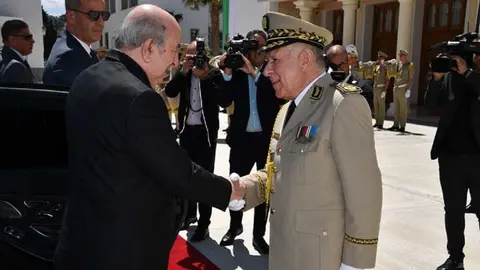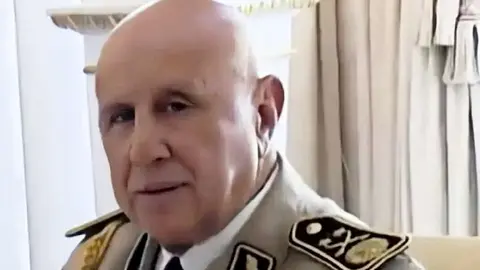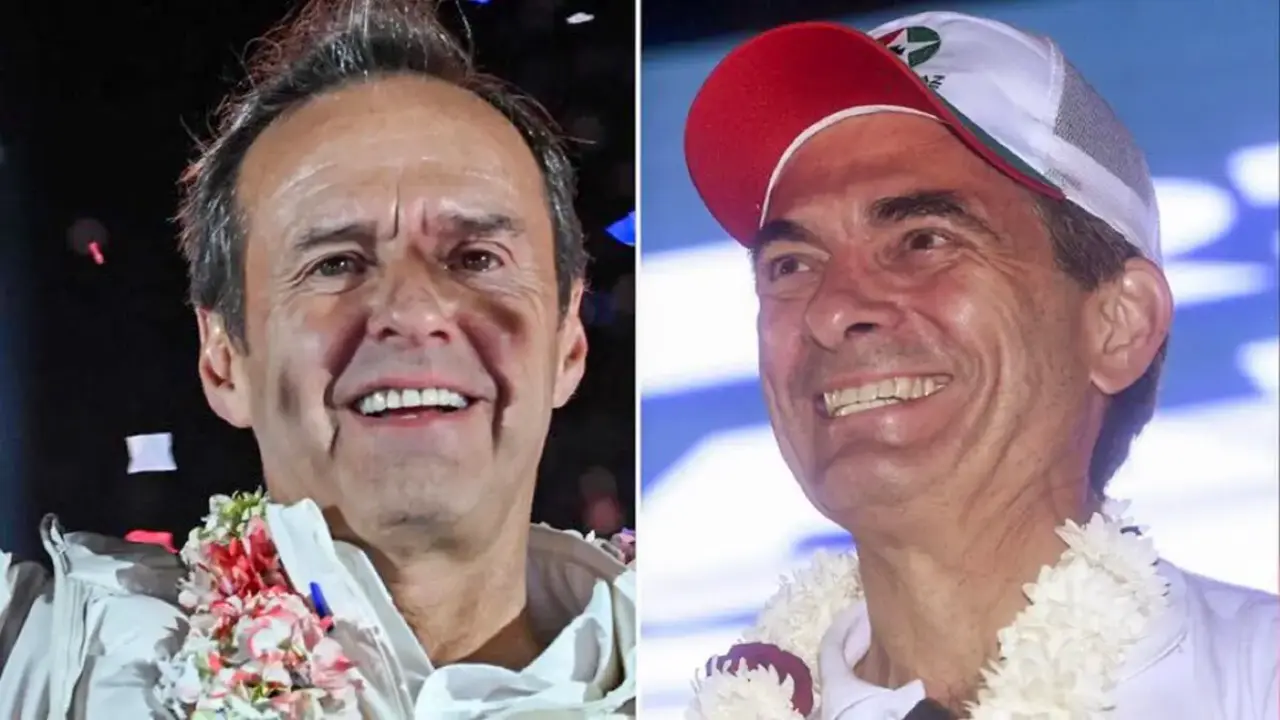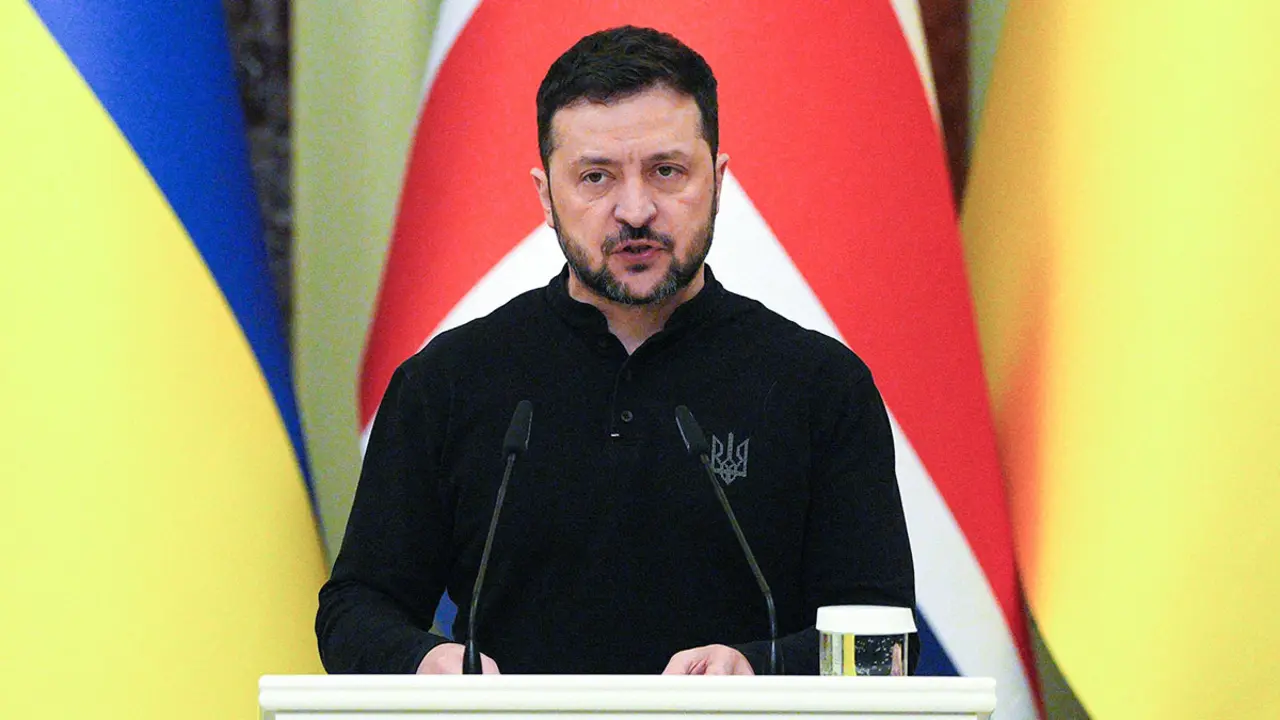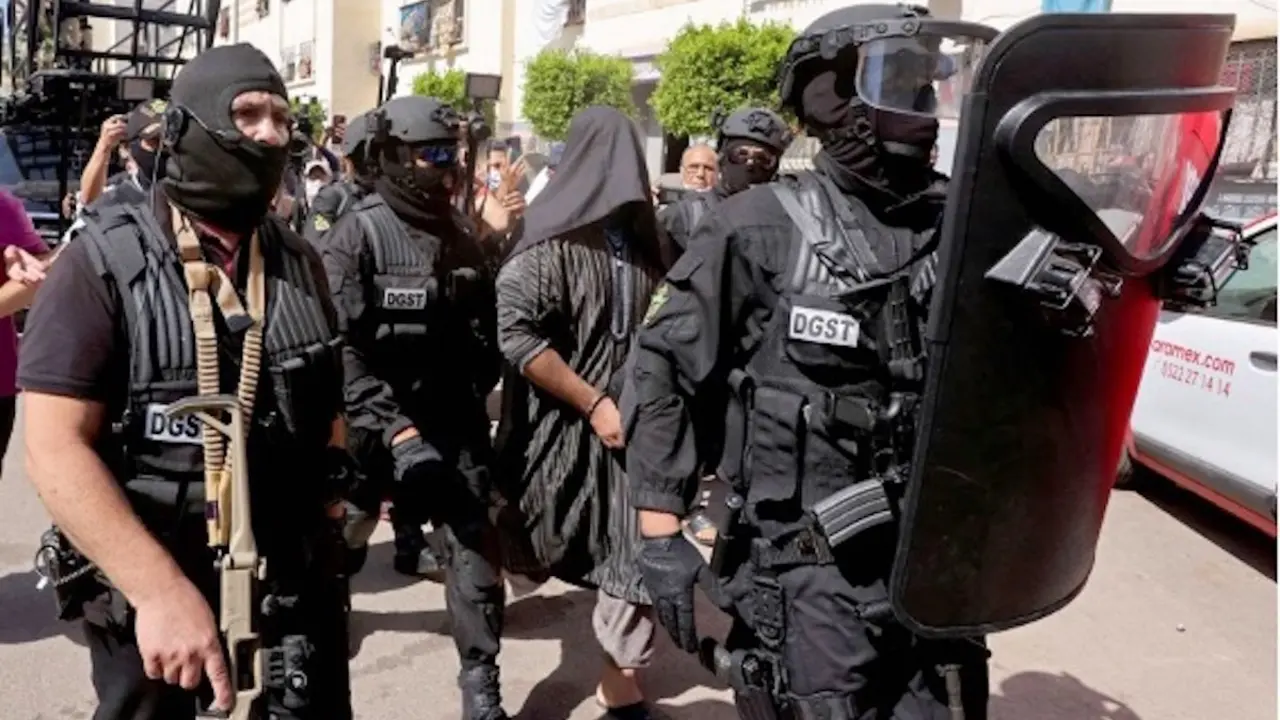Tebboune, candidate of a small Islamist party for a second term in office
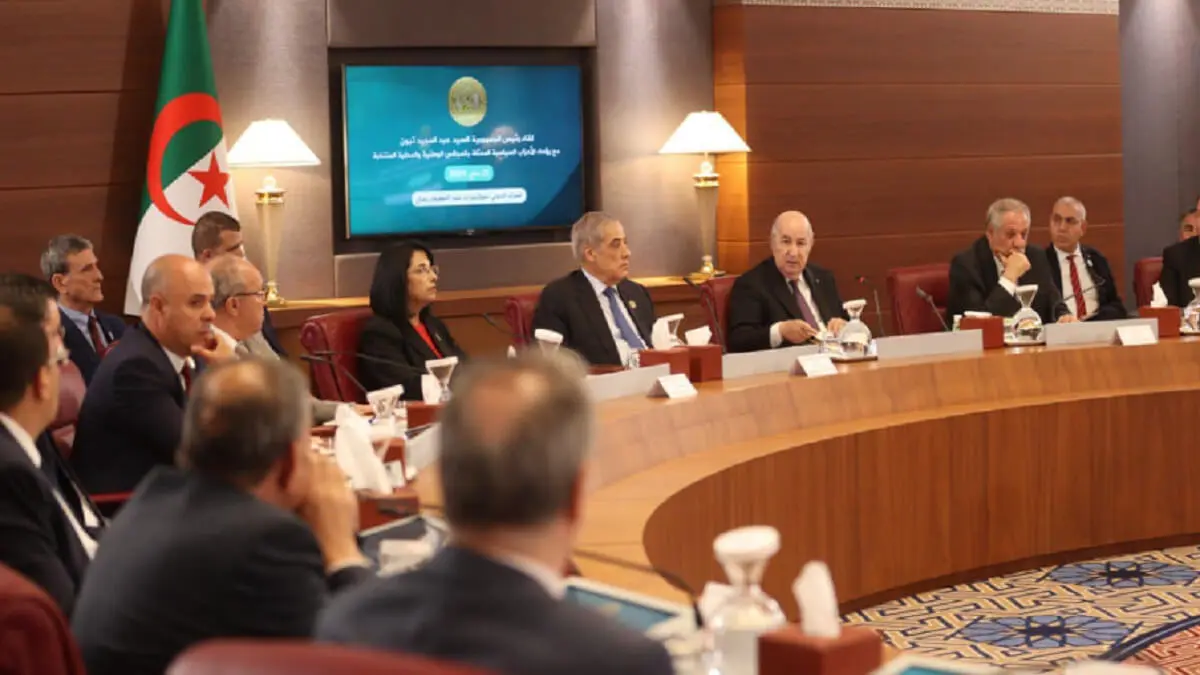
A candidate imposed in 2019 by the all-powerful army chief, the late Lieutenant General Ahmed Gaïd Salah, Deputy Minister of National Defence and Chief of Army Staff, Abdelmadjid Tebboune finds himself, five years later, the candidate of a moribund political party, without popular support and with a sulphurous reputation as a party of opportunists. What a shock!
Despite its importance, the announcement has been magnificently ignored, up to the time of writing, by the two official channels of communication, the national press agency, APS, and public television. Two media outlets controlled by the army. This is a sign that Tebboune's candidacy has not been approved, as he intends to confront the decision-makers behind the scenes. The military and its secret services.
It all began on Tuesday 21 May with a meeting between President Tebboune and the heads of the political parties represented in the elected assemblies (Parliament and cantonal and communal assemblies) in a poorly lit room at the Algiers International Conference Centre. Two days later, on Thursday 23 May, the National Liberation Front (FLN), the National Democratic Rally (RND), the El Bina Movement and the El Moustakbal Front announced the formation of a political alliance to ‘achieve a national consensus and build a strong Algeria’.
The secretary general of the FLN, Algeria's oldest political party, which holds a majority in parliament with 98 of the 407 seats in the National Assembly, declared that this alliance ‘is not a temporary alliance linked to the presidential election, but intends to go further to take positions in the political, legal and socio-economic fields’.
As for participation in the presidential election on 7 September, RND secretary general Mustapha Yahi said in a statement to the press that the alliance ‘will present a consensual candidate who meets the necessary conditions, in particular the ability to preserve the achievements made since 2019 and to pursue reforms to achieve the goals set’, arguing that Algeria ‘needs strong political parties’, reports the official APS news agency.
The four parties promise to move forward together and ‘plan to draw up an ethical charter focused on the moralisation of political action within the framework of a common approach aimed at building a state based on the rule of law’.
Less than twenty-four hours after the announcement of this newcomer to the Algerian political scene, its weakest link surprised everyone by endorsing President Tebboune as a candidate in the upcoming presidential elections. His alliance partners were caught off guard and speechless. Not the slightest comment on this unexpected announcement.
It is hard to imagine the FLN, with all its historical legacy and weight, hitching its wagon to a much weaker party. The same goes for the RND and even the El-Moustaqbil Front, which has more MPs in the assemblies than Bengrina's party.

Unexpected presidents
Until proven otherwise, and as has been demonstrated over the years, the candidate for the supreme magistracy is the army's chosen colt. No political party has ever ventured to share with the army the patronage of a presidential candidate. The role of the political parties is limited to supporting the Army candidate in his election campaign. Nothing more. Sometimes, it dispenses with this support. As in 1999 and 2004, for Bouteflika's first two terms in office.
Another military custom is that the announcement of the candidacy is made in the last minutes before the deadline for presidential candidates to present their candidacies. And it is always a surprise candidate.
In 1979, to succeed the late Houari Boumediene, the announcement of the candidacy of Colonel Chadli Benjedid, then head of the 2nd military region, came as a surprise to the candidate himself. Chadli did not expect to be elected. The choice was between Abdelaziz Bouteflika, Minister of Foreign Affairs for 13 years, and Mohamed Salah Yahiaoui, coordinator of the FLN party apparatus since September 1977, after having directed the inter-army military academy in Cherchell for several years.
Chadli occupied the El-Mouradia palace until the day when Generals Mohamed Lamari, Chief of Army Staff, and Khaled Nezzar, Minister of National Defence, accompanied by the President of the Constitutional Council, Abelmalek Benhabilès, entered the presidential office to depose him. That was in January 1992.
A few days later, another president would emerge from the surprise pocket of the military. Mohamed Boudiaf, exiled and banished for 28 years, was brought back from the remote Moroccan town of Kenitra to take his place at the head of the Algerian state, without elections. The blessing of the generals was more than enough. For bad casting, they did not hesitate to eliminate the colt in public and in front of television cameras, six months after bringing him back with great fanfare. The vacuum was filled by an old National Liberation Army colonel, Ali Kafi, at the head of a collegiate leadership team, called the High State Council, whose real head was none other than General Khaled Nezzar, the Minister of National Defence.
Also part of the surprise package was retired General Liamine Zeroual, who was enjoying a peaceful retirement in his hometown of Batna. From the capital of the Aurès region, the cradle of the war of national liberation launched on 1 November 1954, he was propelled to the El-Mouradia palace after a few months' stopover at the Ministry of National Defence. He never expected to wear the suit of President of the Republic. He intended it to be worn by Abdelaziz Bouteflika, Boumediene's former companion who was banned from El-Mouradia in 1979.
Zeroual's project was aborted by those really in charge and it was he who was forced to occupy the presidential chair. After warming the folding seat as president of state without election, on 30 January 1994, succeeding Ali Kafi, he was elected president of the Republic on 16 November 1995 with 61.3% of the vote.
Unable to resist pressure from the shadow generals, Zeroual resigned in April 1999 to make way for Abdelaziz Bouteflika. In the end, Boumediene's former foreign minister acceded to the presidential palace when he least expected it. It is the logic of the surprise package. He broke the record for longevity at the helm of the Algerian state (20 years) until he was removed, a few days before the end of his fourth term, by the man he had enthroned at the head of the army with two hats: chief of staff and deputy minister of national defence. General Ahmed Gaïd Salah would not fail in the military tradition of choosing the tenants of the El-Mouradia palace. Abdelmadjid Tebboune, the man with an atypical career path will emerge from his grab bag. From disciplined state employee to head of state after a desert crossing, in the truest sense of the word, during which he planted tomatoes and potatoes in the great Algerian desert near Adrar.
The choice of General Gaïd Salah was contested by the military hierarchy. General Wacini Bouazza, then head of internal security and in charge of overseeing the electoral fraud in Tebboune's favour, chose another protégé. Azzedine Mihoubi, Minister of Culture under Bouteflika. He failed in his attempt and is now spending a hellish period in Blida prison, having been sentenced to 16 years in prison and reduced to the rank of a simple cavalryman.
Who is Bengrina, Tebboune's new godfather, and how much weight does he carry?
But Tebboune's greatest misfortune is the disappearance of his godfather a few days after his enthronement. He was taken over by men he did not know, who tried to unseat him from the beginning of his mandate, when he was hospitalised in Germany with COVID-19. By making numerous concessions and submitting completely to the wishes of the new army chief, General Saïd Chengriha, he managed to extend his mandate, although it was shortened by four months.
The announcement of early presidential elections, scheduled for 7 September, has cast doubt on Tebboune's re-election for a second term. A second term will be synonymous with liberation for a man who is very much afraid of finding himself behind bars after leaving El-Mouradia.
Tebboune began his election campaign early, addressing workers on the occasion of International Labour Day on 1 May, before presenting his balance sheet to the military hierarchy ten days later, while singing the praises of Chengriha and his generals. This signal is slow in coming. He seems to ignore or forget the tradition of the military in nominating the presidential candidate. In his haste, he has allowed himself to be dragged along by Abdelkader Bengrina, an opportunist to the core, who dreams of playing the role of shadow decision-maker as well. A role that does not suit him.
The 62-year-old native of the southern Algerian town of Ouargla came late to politics when he joined HAMAS, which adopted the new name Movement for the Peace Society (MSP), founded by the late Sheikh Mahfoud Nahnah. He rose through the ranks to become the sheikh's chief of protocol. ‘He was the one who carried his backpack, prepared the chair for him to sit on, took care of his welfare, etc.,’ says a former journalist who knew both of them. This special attention he paid to the party leader was to his advantage. He was one of the first Islamist party ministers to join Ahmed Ouyahia's government, under the presidency of Liamine Zeroual, on 24 June 1997. He was Minister of Tourism and Traditional Handicrafts until 23 December 1999, the date of Abdelaziz Bouteflika's first government.
In the search for a new ministerial post, Bengrina did not see anything coming and changed his post. In 2009, he followed Abdelmadjid Menasra, who had split from the MSP to found the Movement for Preaching and Change (MPC). Four years later, noting the failure of this political formation to carve out a niche in a bloodless political scene where there was only room for sycophants and courtiers of the regime, he created his own political group, Al-Bina Alwatani (National Construction), in 2013. A year later, his party was approved. In 2019, in the presidential elections announced as won by Tebboune, General Gaïd Salah's candidate, he will serve as a hare to emerge from anonymity.
While Tebboune had to settle for 4 million votes from the 24 Algerian voters to become president of the Republic, Bengrina came second, with one million votes, in a historic election that was widely boycotted by the Algerian people and marked by the biggest electoral fraud ever seen in the world.
In 2021, Bengrina committed his political party to the legislative elections, which were also marked by monstrous fraud, and in which he came fifth with 49 of the 470 seats, obtaining 106,203 votes out of more than 25 million registered voters, of whom only 23.02% turned out to vote.
These figures speak volumes about Abdelkader Bengrina's influence on the Algerian political scene. Abdelmadjid Tebboune's new godfather. This raises questions about the agreement reached between the two men: is it a way of forcing the army to hurry up and elect Tebboune for the next mandate? We don't think this is the best way to do it. Has Bengrina reached an agreement with the army to get rid of the Tebboune card? Bengrina would never take the slightest initiative without being between a rock and a hard place. Was it a military faction hostile to Chengriha and the security services that gave Tebboune the security to challenge his adversaries by relying on a political grouping, whatever its weight? These and many other questions deserve answers. They will not be long in coming. We are only 15 days away from the call for voters, scheduled for 8 June, and a stone's throw away from the opening of the election campaign.


